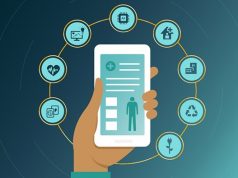Machines may learn from their experiences, adapt to novel inputs, and execute human-like jobs thanks to Artificial Intelligence (AI). Most AI examples you notice today rely largely on natural language processing and deep learning, from chess-playing computers to self-driving cars. Computers can be taught to perform certain jobs by processing massive volumes of data and recognizing patterns using these methods. Let’s understand how to start learning Artificial Intelligence in this competitive environment.
Artificial Intelligence History
Artificial Intelligence (AI) was first introduced in 1956, but because of amplified data volumes, improved algorithms, and advances in computer storage and power, AI is becoming more common today.
In the 1950s, AI research focused on symbolic and problem-solving approaches. The Department of Defense of the US became interested in this kind of work in the 1960s and began teaching computers to emulate fundamental human reasoning. And, long before Alexa, Siri, or Cortana became household names, DARPA developed intelligent personal assistants in 2003.
This pioneering work opened the path for today’s computers to automate and formalize thinking, such as smart search engines and decision support systems, which can be built to augment and complement human talents.
While Hollywood cinema and science fiction portray AI as humanoid machines that invade the world, the present state of AI technology isn’t nearly that frightening – or as intelligent. Rather, AI has developed to give a wide range of benefits across all industries. Continue reading to learn about modern applications of Artificial Intelligence in fields such as healthcare, retail, and more.
Why is Artificial Intelligence Important?
Data-driven AI automates discovery and repetitive learning. However, AI is not the same as robotic automation which is controlled by hardware. Instead of automating manual procedures, AI performs routine, high-volume computerized jobs consistently and fatigue-free. For this type of automation, human inquiry is still required to set up the system and ask the appropriate questions.
Artificial Intelligence (AI) enhances the intelligence of existing products. In most circumstances, AI will not be sold as an individual product. Rather, AI features will be added to existing goods, similar to how Siri was brought to new Apple products. Bots, Automation, smart machines, and conversational platforms can all be used in conjunction with vast volumes of data to improve a variety of technologies at home and business, from investment research to security intelligence.
AI adapts by allowing data to programme itself using progressive learning algorithms. AI discovers structure and regularities, allowing the algorithm to develop a skill: it becomes a predictor or classifier. Consequently, just as the algorithm can educate itself to play chess, it can also educate itself on what product to promote next on the internet. When fresh data is introduced, the models adapt. When the first answer is incorrect, backpropagation is an Artificial Intelligence strategy that lets the model fine-tune through training and further data.
Using neural networks with numerous hidden layers, AI analyses more and more data. It was nearly difficult a few years ago to build a fraud detection system with four hidden levels. With the advent of supercomputers and big data, all of that has changed. Deep learning models require a large amount of data to teach because they study directly from the data. The more data you can give them, the further precise they will become.
Deep neural networks enable AI to achieve previously unthinkable levels of accuracy. Your interactions with Google Search, Alexa, and Google Photos, for example, are all built on deep learning, and they’re becoming better as we use them. Image classification, deep learning, and object identification AI algorithms may now be utilised in the medical profession to spot disease on MRIs with similar accuracy as trained radiologists.
AI makes the most of information. When algorithms learn on their own, the data becomes intellectual property. The solutions are in the data; all you have to do now is use AI to extract them. Data currently plays an essential role more than ever before, and it can help you gain a competitive advantage. Even though everyone uses similar approaches, you will win if you have the greatest data in a cut-throat business.
The AI technologies depicted in movies and on television are still science fiction. Computers that can examine complex data in order to learn and perfect certain jobs, on the other hand, are becoming increasingly popular.
Artificial Intelligence in Today’s World
AI and the Internet of Things
Data surround us. The Internet of Things (IoT) and sensors can collect vast amounts of data, and Artificial Intelligence (AI) may discover patterns in the data to automate processes for some business purposes.
Integrate AI into your Analytics Program
Your AI plan must feed into your bigger company strategy, always considering the convergence of people, processes, and technology for AI to be effective.
Separate Hype From Reality
AI is assisting in the integration of “increasing smartness into machines,” but it is not about taking over the planet. Hence, equip yourself with a course on Artificial Intelligence.
How Artificial Intelligence Is Being Used
AI capabilities are in high demand in every business, particularly question-answering systems that may be utilised for legal aid, patent searches, risk alerts, and medical research. Other applications of AI include:
Health Care: Personalized medication and X-ray readings can be provided by AI applications. Personal health care assistants can serve as life coaches who remind you to take your medicines, exercise and eat more healthily.
Retail: Virtual shopping capabilities are provided by AI, delivering individualized recommendations and discussing buying choices with the customer.
Manufacturing: Using repeated networks, a type of deep learning network used with sequence data, AI can gauge industrial IoT data as it streams from associated equipment to estimate projected load and demand.
Banking: Artificial Intelligence improves human efforts in terms of speed, precision, and effectiveness. AI approaches can be utilized in financial institutions to foresee which transactions are most likely to be fraudulent, implement fast and correct credit scoring, and automate labour-intensive data management chores.
Working Together With AI
Artificial Intelligence isn’t coming to take our place. It enhances our abilities and improves our performance. Because AI algorithms learn in a different way than humans, they have a distinct perspective on things. There are many Artificial Intelligence courses available online. They can perceive patterns and relationships that we are unable to see. This human-AI collaboration opens up a lot of doors. It can:
Bring analytics to industries and domains where it’s currently underutilized.
Improve existing analytic technologies such as computer vision and time series analysis. There are several Artificial Intelligence online certification courses.
Break down language and translation hurdles, as well as economic restrictions.
Enhance our current abilities and help us become better at what we do.
Give us improved vision, comprehension, and memory, among other things.
Conclusion
Everyone should learn Artificial Intelligence to remain relevant in the industry. Artificial Intelligence will transform every business, but we must first comprehend its limitations. mind. If you want to learn AI from scratch and if interested, then you can enroll for an Introduction to artificial intelligence course for free in order to get more insights of AI.
Today’s AI systems are programmed to do a certain purpose. The poker-playing system is incapable of playing solitaire or chess. The machine that identifies fraud is incapable of driving or providing legal advice. For instance, an AI system that detects healthcare fraud cannot detect tax or warranty-claim fraud effectively.
The fact that AI learns from data is its primary constraint. There is no other way to assimilate information into one’s life. That means that any data inaccuracies will be reflected in the findings. Additionally, any additional prediction or analysis layers must be added individually. You can also take up an Artificial Intelligence course in India to adept yourself with adequate knowledge.
To put it another way, these systems are incredibly specialized. They are completely focused on a single task and do not act like people.
Follow Technoroll for more!





